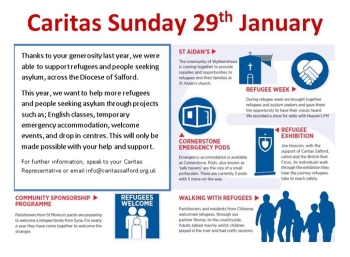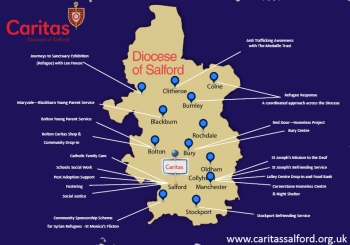Dear Parishioners,
In Lent we are asked to prepare for Easter by prayer and sacrifice. If you haven’t decided yet what you will do for Lent then please consider one of the following (or more than one!).
Give God some silent attention each day.
Buy (£1) the ‘Walk With Me’ booklet which will help you pray and reflect each day of Lent.
Join the Stations of the cross in Clitheroe at 7.30pm on Fridays and in Sabden at 7.30pm on Tuesdays.
Join the Lenten Praise and Prayer Service after Mass on Thursdays at 8.10pm until 9.15pm.
Spend a little time each day reading the Bible in the quiet of your home.
Attend daily Mass (details weekly in the newsletter)
Come to Exposition on Saturday mornings between 11am and 12noon
Pay a visit to the church, which is open daily during daylight hours.
Encourage someone who has been away from mass to return to practice and accompany them to church.
Recite the Rosary at home or join the weekday recitation in church at 9.30am.
Visit someone in need of help or friendship, or perhaps an elderly relative you haven’t visited for a while?
Make up a longstanding quarrel.
Help to clean the church on Monday mornings at 9.30
Give up a favourite treat like sweets, drink, watching too much TV or cigarettes.
Keep ‘Family Fast day’ on Friday
Every Friday give up eating meat.
Make a clean sweep. Go to the Sacrament of Reconsiliation (Confession), available Saturdays in Clitheroe from 11 to 11.45 and during the Stations of the Cross on Fridays.
Attend the series of ecumenical Lenten talks on Saturday mornings in the Hall at 11am (Coffee from 10.30)
Attend the Deanery Mass for Vocations on Wednesday 8th March at 7.30pm in St Joseph’s Blackburn.
Think before you take your car. Walk in town and fight Global Warming.
Wishing you a fruitful Lent.
Fr John



